Every Spoon Album Ranked
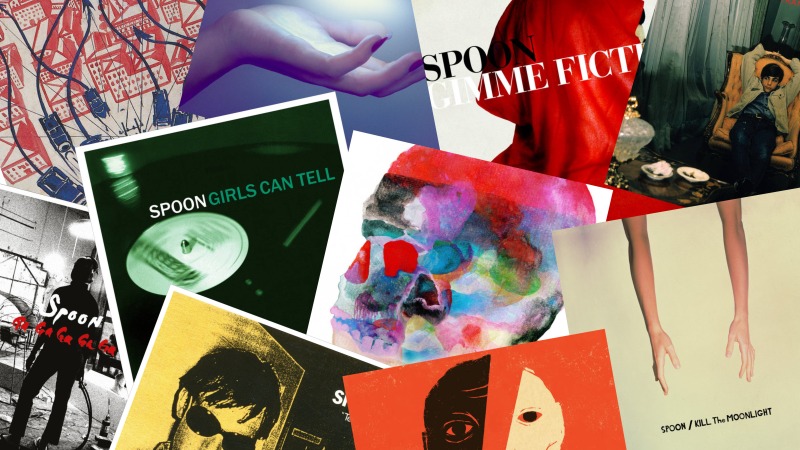
In every feature, review or other written piece about Spoon, the adjective “consistent” is almost always used to describe the Austin rock band’s critically lauded discography. This detail isn’t mere flattery; in 2009, review aggregate site Metacritic tallied the numbers to reveal Spoon as the “overall top artist of the decade,” with the majority of the band’s albums scoring above an 80, meaning great.
While consistent is a convenient descriptor, high album scores aren’t what make Spoon such a beloved group. Spoon expertly fuse experimental eccentricities with tightly constructed pop songwriting to cover topics ranging from matters of the heart to the search for true personal identity. While they are a stellar rock group first and foremost, some of their best material goes down bizarre, unconventional paths with nary a guitar in earshot.
The man behind all of these brilliant songs is Britt Daniel, whose sharp, pinched bark and smooth croons also make him one of the greatest voices in modern rock ’n’ roll. The band’s other sole original member is Jim Eno, a deceptively talented drummer and veteran audio engineer.
Throughout the years, Spoon has managed to hone a distinct, tell-tale sound that only takes a few seconds and key instruments to identify. Previously, Paste offered another definitive Spoon ranking of its top 10 songs, but today, on the 20th anniversary of the band’s fifth studio album, Gimme Fiction, we attempt a ranking of every Spoon record.
10. Telephono
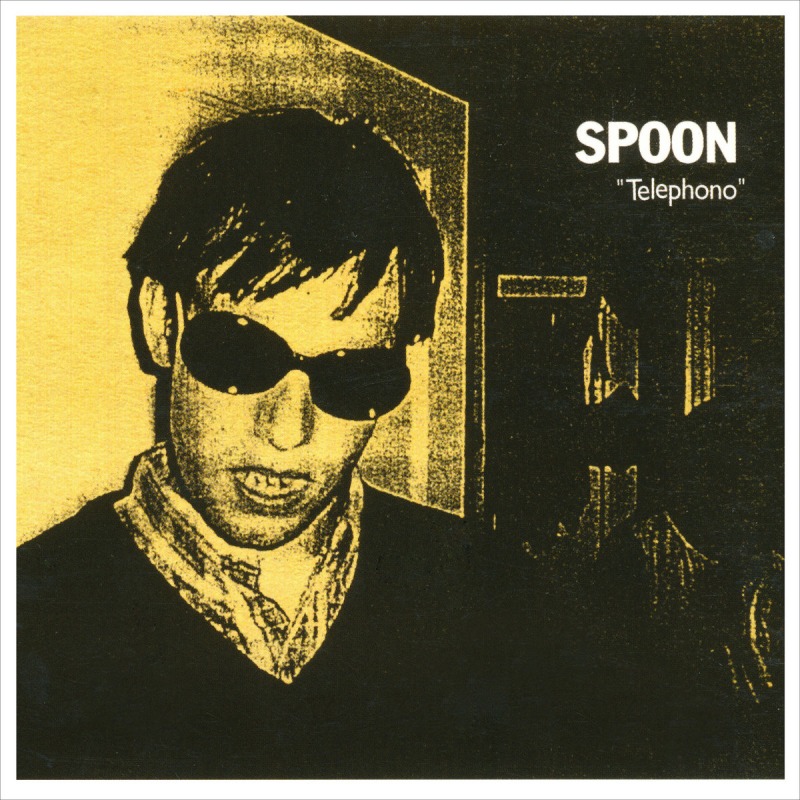 Spoon’s rough, nervy debut is, arguably, the only true dent in its discography. Telephono features 14 frenetic, frenzied alternative rock songs heavily indebted to the quiet-loud-quiet dynamic the Pixies grafted into the sub-genre’s DNA a few years prior. It’s also the only Spoon record where Daniel ever uses the word “fuck” as a lyric. This may seem like a trivial detail, but it stresses the jagged aggression Spoon tried so hard to pack in these songs. While the band are no strangers to strangling guitars into chaos, the grunge fury of “Claws Tracking” and “Not Turning Off” sound uncharacteristic and trite. Like Radiohead’s Pablo Honey, Telephono is a window into an alternate timeline where Spoon was simply drowned out by its influences, never finding its signature, hip swinging style.
Spoon’s rough, nervy debut is, arguably, the only true dent in its discography. Telephono features 14 frenetic, frenzied alternative rock songs heavily indebted to the quiet-loud-quiet dynamic the Pixies grafted into the sub-genre’s DNA a few years prior. It’s also the only Spoon record where Daniel ever uses the word “fuck” as a lyric. This may seem like a trivial detail, but it stresses the jagged aggression Spoon tried so hard to pack in these songs. While the band are no strangers to strangling guitars into chaos, the grunge fury of “Claws Tracking” and “Not Turning Off” sound uncharacteristic and trite. Like Radiohead’s Pablo Honey, Telephono is a window into an alternate timeline where Spoon was simply drowned out by its influences, never finding its signature, hip swinging style.
9. A Series of Sneaks
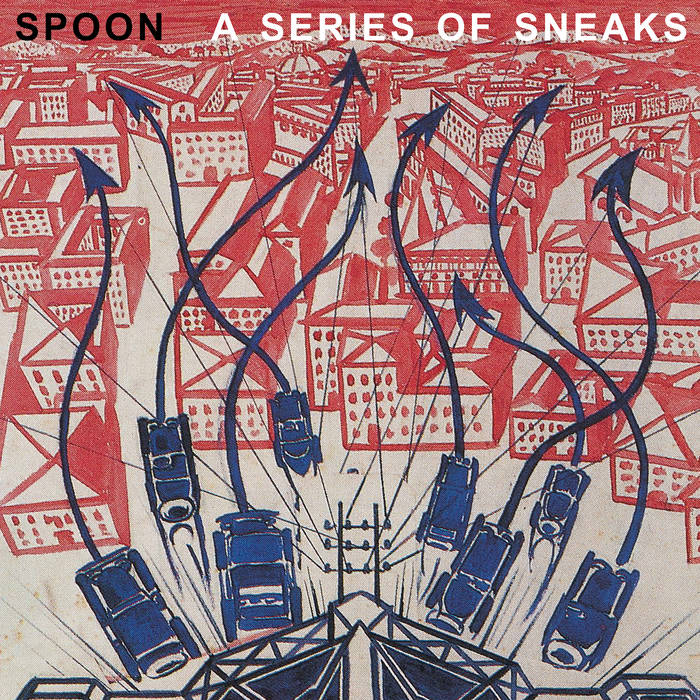 The band’s sophomore release is remarkable in the leaps it accomplishes over its successor. Rather than force a tough as nails grunge sound, Daniel, Eno and former bassist Josh Zarbo turned down the volume to write songs with purposes beyond crushing heads with fat riffs. For all the blood-pumping punk “Utilitarian” and “The Guestlist/The Execution” offer, the more nuanced performances of “Reservations” and “The Minor Tough” show the band’s true growth. A Series of Sneaks most notable song is fan favorite “Metal Detektor,” a lo-fi ballad about desperately trying to reach beyond rock bottom. It’s the record’s latter half, with the criminally short “Chloroform,” and derivative thrashers “Quincy Punk Episode” and “June’s Foreign Spell,” that keep A Series of Sneaks a few notches below other formative early works like Girls Can Tell and Kill The Moonlight.
The band’s sophomore release is remarkable in the leaps it accomplishes over its successor. Rather than force a tough as nails grunge sound, Daniel, Eno and former bassist Josh Zarbo turned down the volume to write songs with purposes beyond crushing heads with fat riffs. For all the blood-pumping punk “Utilitarian” and “The Guestlist/The Execution” offer, the more nuanced performances of “Reservations” and “The Minor Tough” show the band’s true growth. A Series of Sneaks most notable song is fan favorite “Metal Detektor,” a lo-fi ballad about desperately trying to reach beyond rock bottom. It’s the record’s latter half, with the criminally short “Chloroform,” and derivative thrashers “Quincy Punk Episode” and “June’s Foreign Spell,” that keep A Series of Sneaks a few notches below other formative early works like Girls Can Tell and Kill The Moonlight.
8. Transference
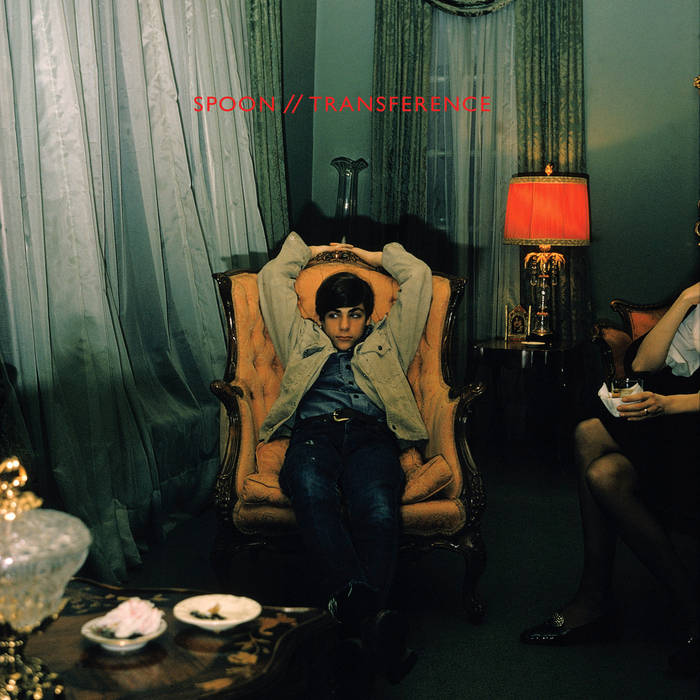 Transference is, by no means, the late-career letdown some fans paint it as. Released after Spoon’s chart flirting Ga Ga Ga Ga Ga, it’s a weirder record that updates the muted tones of Girls Can Tell with a decade’s worth of experience in studio trickery and tighter playing. It also cracked the Billboard 200’s top 10, the band’s highest position at the time, by selling 53,000 copies in its first week. Rather than use a traditional producer, the band recorded much of Transference on its own, wishing to make, in Daniel’s words, an “uglier” record. Half the takes are actually original song demos touched up with a professional mix by longtime engineer Mike McCarthy. All in all, Transference is the true grower of the Spoon discography, a record offering increased rewards to third and fourth listens. “Who Makes Your Money”’s hushed ghost-funk can come off obtuse at first, but Daniel’s soulful vocal performance and the mid-song krautrock breakdown reveal greater layers after a few revisits. Spoon also does post-punk honest with the flattening “Got Nuffin” and teeth-gnashing “Written In Reverse.” That said, repeated listens don’t uncover much more from the blues dirge of “I Saw the Light” and forgettable piano ballad “Goodnight Laura.” While Transference does reveal satisfying surprises, it’s an investment that doesn’t offer the same level of thrilling returns as the albums that surround it.
Transference is, by no means, the late-career letdown some fans paint it as. Released after Spoon’s chart flirting Ga Ga Ga Ga Ga, it’s a weirder record that updates the muted tones of Girls Can Tell with a decade’s worth of experience in studio trickery and tighter playing. It also cracked the Billboard 200’s top 10, the band’s highest position at the time, by selling 53,000 copies in its first week. Rather than use a traditional producer, the band recorded much of Transference on its own, wishing to make, in Daniel’s words, an “uglier” record. Half the takes are actually original song demos touched up with a professional mix by longtime engineer Mike McCarthy. All in all, Transference is the true grower of the Spoon discography, a record offering increased rewards to third and fourth listens. “Who Makes Your Money”’s hushed ghost-funk can come off obtuse at first, but Daniel’s soulful vocal performance and the mid-song krautrock breakdown reveal greater layers after a few revisits. Spoon also does post-punk honest with the flattening “Got Nuffin” and teeth-gnashing “Written In Reverse.” That said, repeated listens don’t uncover much more from the blues dirge of “I Saw the Light” and forgettable piano ballad “Goodnight Laura.” While Transference does reveal satisfying surprises, it’s an investment that doesn’t offer the same level of thrilling returns as the albums that surround it.
-

-

-

-

-

-

-

-

-

-

-

-

-

-

-

-

-

-

-

-

-

-

-

-

-

-

-

-

-

-

-

-

-

-

-

-

-

-

-

-

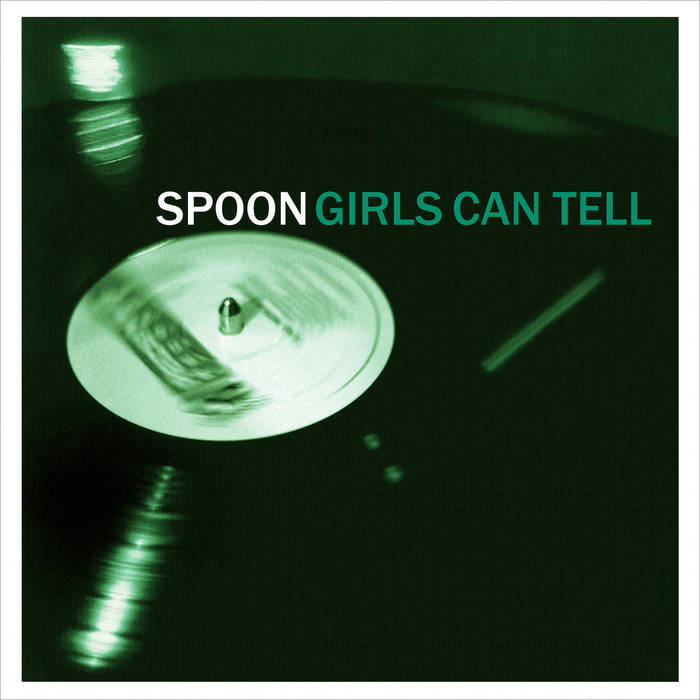 After the near fatal album rollout behind A Series of Sneaks, Spoon released a shade-throwing single, the stellar Love Ways EP and, most importantly, the record that laid the groundwork for the band’s slow and steady rise to indie rock icons. Inspired by ‘60s R&B and Something Else-era Kinks, the immediate differences between Girls Can Tell and the band’s prior releases are apparent from opener “Everything Hits At Once.” Eno rolls into a steady beat as Daniel’s wounded, weary voice comes to terms with a freshly dissolved relationship. In the chorus, husky piano casts a dark pallor over the stinging guitar, a sonic combination the band would revisit time and time again. It’s a devastating track made all the more effective by the band eschewing its earlier alt-rock tendencies to create something much more emotive and personal. While Girls Can Tell is no doubt a thrilling document on how Spoon became Spoon, these 11 tunes are some of the band’s most chilled and detached. “Believing Is Art” recalls the tense build-ups of Telephono, but trades all-out ferocity for icy restraint. Elsewhere, “Chicago At Night” tells an especially bleak tale of a young woman being swallowed by the unflinching pace of city life. These frigid tones are largely thawed, however, with “Anything You Want” one of Daniel’s most affecting heartbreak ballads. “It’s just a matter of time / It’s almost measurable / Imagination ain’t kind on us tonight,” he sings with a resigned shrug. While it’s spare instrumentation and sad-eyed songwriting don’t make it as universal as other Spoon albums, Girls Can Tell is an early and enduring triumph for the group.
After the near fatal album rollout behind A Series of Sneaks, Spoon released a shade-throwing single, the stellar Love Ways EP and, most importantly, the record that laid the groundwork for the band’s slow and steady rise to indie rock icons. Inspired by ‘60s R&B and Something Else-era Kinks, the immediate differences between Girls Can Tell and the band’s prior releases are apparent from opener “Everything Hits At Once.” Eno rolls into a steady beat as Daniel’s wounded, weary voice comes to terms with a freshly dissolved relationship. In the chorus, husky piano casts a dark pallor over the stinging guitar, a sonic combination the band would revisit time and time again. It’s a devastating track made all the more effective by the band eschewing its earlier alt-rock tendencies to create something much more emotive and personal. While Girls Can Tell is no doubt a thrilling document on how Spoon became Spoon, these 11 tunes are some of the band’s most chilled and detached. “Believing Is Art” recalls the tense build-ups of Telephono, but trades all-out ferocity for icy restraint. Elsewhere, “Chicago At Night” tells an especially bleak tale of a young woman being swallowed by the unflinching pace of city life. These frigid tones are largely thawed, however, with “Anything You Want” one of Daniel’s most affecting heartbreak ballads. “It’s just a matter of time / It’s almost measurable / Imagination ain’t kind on us tonight,” he sings with a resigned shrug. While it’s spare instrumentation and sad-eyed songwriting don’t make it as universal as other Spoon albums, Girls Can Tell is an early and enduring triumph for the group.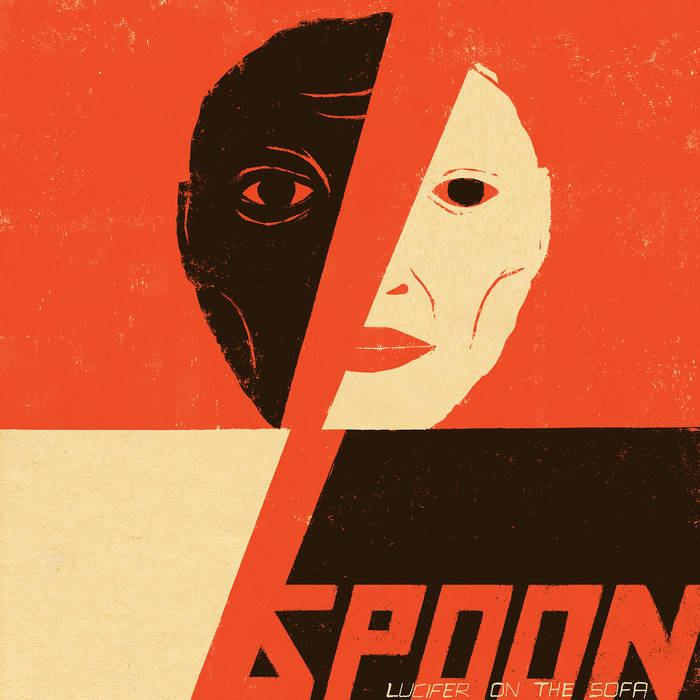 It’s hard to think of many bands who have been as consistently excellent for as long as Spoon have. For close to 30 years now, the Austin group have managed to maintain a restless, unsettled energy, expanding their sonic palette and transcending their obvious early influences as Britt Daniel, Jim Eno and a shifting lineup of collaborators honed a distinctive sound all their own. Spoon haven’t eased off a bit on Lucifer On the Sofa. The band’s 10th album is also its first since 2017, and while it’s been a while since Spoon have had anything to prove, they still sound hungry. Indeed, Daniel has said that the title of the album refers to battling against “the bitterness, or lack of motivation or desperation that keeps you down and makes you do nothing or self-indulge.” Suffice to say that lack of motivation wasn’t a problem here. Lucifer on the Sofa is taut and textured, mixing trebly, caustic guitar licks with piano and big, propulsive currents of rhythm. Sometimes there’s a potent urgency underpinning the songs: “Feels Alright,” for example, opens with an abrading descending guitar riff and a boom-bap beat, then pivots into a vamp right on the edge of funk, with a lot of movement in the bassline. Elsewhere, “The Hardest Cut” is a tough boogie that bubbles and seethes with guitars over a relentless, clapping beat. There’s more than a hint here of another Texas stalwart, ZZ Top, but refracted through Spoon’s own particular sensibility. If Lucifer has taken up a position on their sofa, Spoon have no intention of sitting there and keeping him company. —Eric R. Danton
It’s hard to think of many bands who have been as consistently excellent for as long as Spoon have. For close to 30 years now, the Austin group have managed to maintain a restless, unsettled energy, expanding their sonic palette and transcending their obvious early influences as Britt Daniel, Jim Eno and a shifting lineup of collaborators honed a distinctive sound all their own. Spoon haven’t eased off a bit on Lucifer On the Sofa. The band’s 10th album is also its first since 2017, and while it’s been a while since Spoon have had anything to prove, they still sound hungry. Indeed, Daniel has said that the title of the album refers to battling against “the bitterness, or lack of motivation or desperation that keeps you down and makes you do nothing or self-indulge.” Suffice to say that lack of motivation wasn’t a problem here. Lucifer on the Sofa is taut and textured, mixing trebly, caustic guitar licks with piano and big, propulsive currents of rhythm. Sometimes there’s a potent urgency underpinning the songs: “Feels Alright,” for example, opens with an abrading descending guitar riff and a boom-bap beat, then pivots into a vamp right on the edge of funk, with a lot of movement in the bassline. Elsewhere, “The Hardest Cut” is a tough boogie that bubbles and seethes with guitars over a relentless, clapping beat. There’s more than a hint here of another Texas stalwart, ZZ Top, but refracted through Spoon’s own particular sensibility. If Lucifer has taken up a position on their sofa, Spoon have no intention of sitting there and keeping him company. —Eric R. Danton The triumphant riffs and rattling percussion of “Rent I Pay,” the first song on
The triumphant riffs and rattling percussion of “Rent I Pay,” the first song on  The band’s latest shows Spoon at its most deliberately sensual, tightly threading the pouty Prince grooves of “I Turn My Camera On” and “Stay Don’t Go” into its most colorful, intoxicating record yet. Thanks to Dave Fridmann’s psychedelic, hi-fi touch, Hot Thoughts is the kind of album worthy of fully disappearing into if you have a decent pair of headphones and 40 minutes to kill. The mix is outsized and upfront,a giving full attention to the weird sonic details and textures that the Flaming Lips producer is known for. “Do I Have To Talk You Into It?” is the most immediate example of this down the rabbit hole approach, with the central piano melody orbiting a fat Eno beat as Daniel uses lip curled swagger to entice a partner into dirty deeds. The album’s astounding centerpiece is “Pink Up,” easily Spoon’s most engaging and abstract sound collage that slowly builds into a disorienting thunderstorm of crashing drums and backmasked vocals. Hot Thoughts not only further strengthens Spoon’s discography, but proves Daniel and company are far from running out of ideas on how to tweak their established sound into bold new directions.
The band’s latest shows Spoon at its most deliberately sensual, tightly threading the pouty Prince grooves of “I Turn My Camera On” and “Stay Don’t Go” into its most colorful, intoxicating record yet. Thanks to Dave Fridmann’s psychedelic, hi-fi touch, Hot Thoughts is the kind of album worthy of fully disappearing into if you have a decent pair of headphones and 40 minutes to kill. The mix is outsized and upfront,a giving full attention to the weird sonic details and textures that the Flaming Lips producer is known for. “Do I Have To Talk You Into It?” is the most immediate example of this down the rabbit hole approach, with the central piano melody orbiting a fat Eno beat as Daniel uses lip curled swagger to entice a partner into dirty deeds. The album’s astounding centerpiece is “Pink Up,” easily Spoon’s most engaging and abstract sound collage that slowly builds into a disorienting thunderstorm of crashing drums and backmasked vocals. Hot Thoughts not only further strengthens Spoon’s discography, but proves Daniel and company are far from running out of ideas on how to tweak their established sound into bold new directions.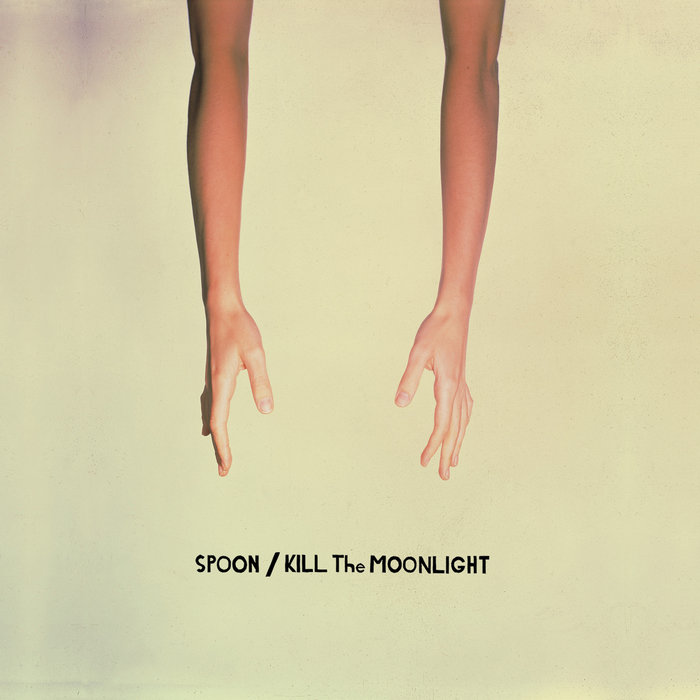 On 2002’s Kill The Moonlight, Spoon threw out the established blueprints of what makes indie rock to construct songs from beatboxing, handclaps and other off-kilter elements. The jaunty “Someone Something” and subtly tragic “The Way We Get By” bring the pianos found in the background of Girls Can Tell to star front and center. “Paper Tiger,” “Stay Don’t Go” and “Back to the Life” are bold, experimental pop songs made up of disparate parts that combine seamlessly together. Kill the Moonlight is also the first album to show Eno as a true percussionist force. His heavy stomp imbues a sense of hip swinging rhythm into these tracks, even the taut punk jam of “Jonathan Fisk.” Kill the Moonlight was a stone cold classic upon arrival and is the rightful introductory point for any Spoon novice. Bold, influential and still fresh a decade-and-a-half later, it established Spoon as a truly forward thinking rock band.
On 2002’s Kill The Moonlight, Spoon threw out the established blueprints of what makes indie rock to construct songs from beatboxing, handclaps and other off-kilter elements. The jaunty “Someone Something” and subtly tragic “The Way We Get By” bring the pianos found in the background of Girls Can Tell to star front and center. “Paper Tiger,” “Stay Don’t Go” and “Back to the Life” are bold, experimental pop songs made up of disparate parts that combine seamlessly together. Kill the Moonlight is also the first album to show Eno as a true percussionist force. His heavy stomp imbues a sense of hip swinging rhythm into these tracks, even the taut punk jam of “Jonathan Fisk.” Kill the Moonlight was a stone cold classic upon arrival and is the rightful introductory point for any Spoon novice. Bold, influential and still fresh a decade-and-a-half later, it established Spoon as a truly forward thinking rock band.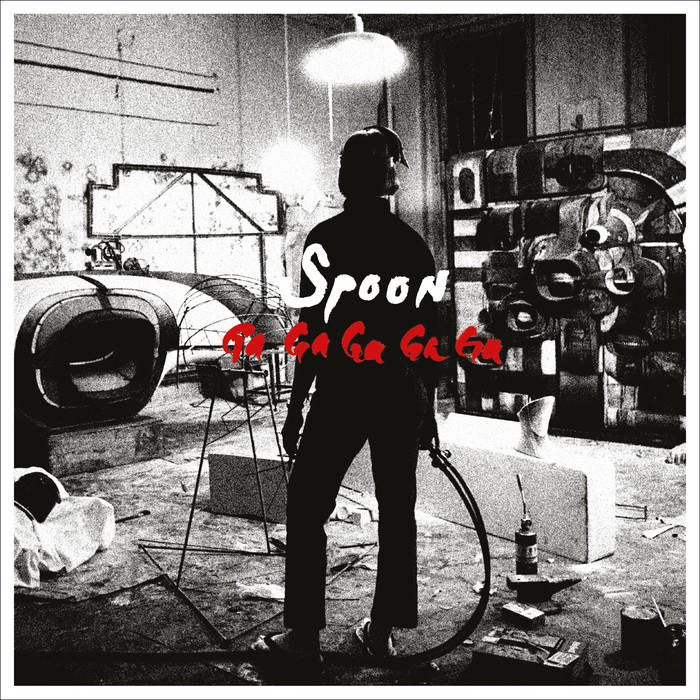 Only a band as idiosyncratic and talented as Spoon could manage to land at No. 10 on the Billboard 200 off an album with a nonsense title like
Only a band as idiosyncratic and talented as Spoon could manage to land at No. 10 on the Billboard 200 off an album with a nonsense title like 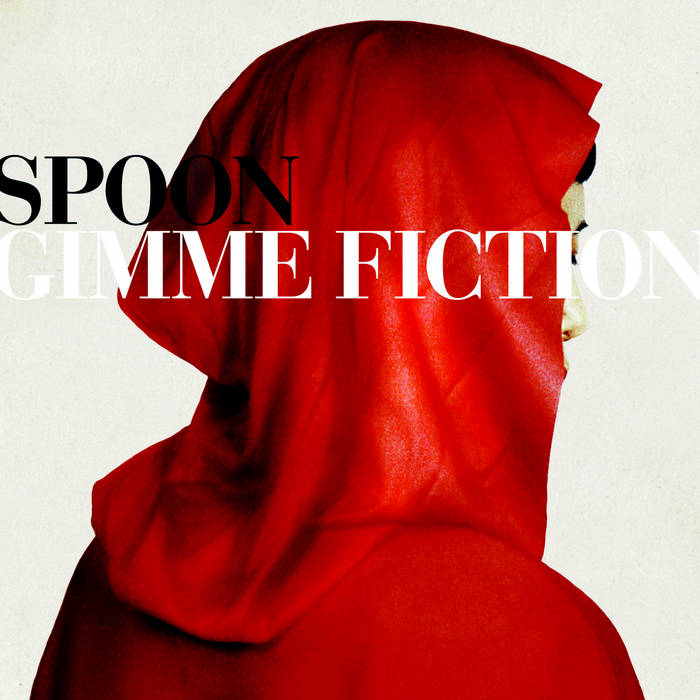 Gimme Fiction is nocturnal and mysterious. It’s a strange and noisy collection of 11 songs that form Spoon’s most consistent (there, we said it) listen from beginning to end. If it possesses a certain theme or trope, it’s the relationship between light and darkness.Yet, more foreboding cuts like “The Two Sides of Monsieur Valentine” and “The Infinite Pet” are countered nicely with the bright pop of “Sister Jack” and “Merchants of Soul.” Meanwhile, several years of listening can never quite answer the unsettling questioned posed by “Was It You?”’s throbbing bass and ghostly vocals. Coupled with this unique yin and yang tracklisting that makes Gimme Fiction so enduring, Daniel turns in his most damaged, broken guitar playing here. The crackling solos all over “Beast And Dragon Adored,” the shrieking explosion at the apex of “The Delicate Place” and the absolutely fed-up throttling unleashed all over “My Mathematical Mind” is six-string lightning in a bottle.Gimme Fiction is the quintessential Spoon, the one record that both fully commits to the band’s weirder tendencies while also providing some of their most enduring pop performances.
Gimme Fiction is nocturnal and mysterious. It’s a strange and noisy collection of 11 songs that form Spoon’s most consistent (there, we said it) listen from beginning to end. If it possesses a certain theme or trope, it’s the relationship between light and darkness.Yet, more foreboding cuts like “The Two Sides of Monsieur Valentine” and “The Infinite Pet” are countered nicely with the bright pop of “Sister Jack” and “Merchants of Soul.” Meanwhile, several years of listening can never quite answer the unsettling questioned posed by “Was It You?”’s throbbing bass and ghostly vocals. Coupled with this unique yin and yang tracklisting that makes Gimme Fiction so enduring, Daniel turns in his most damaged, broken guitar playing here. The crackling solos all over “Beast And Dragon Adored,” the shrieking explosion at the apex of “The Delicate Place” and the absolutely fed-up throttling unleashed all over “My Mathematical Mind” is six-string lightning in a bottle.Gimme Fiction is the quintessential Spoon, the one record that both fully commits to the band’s weirder tendencies while also providing some of their most enduring pop performances.






































